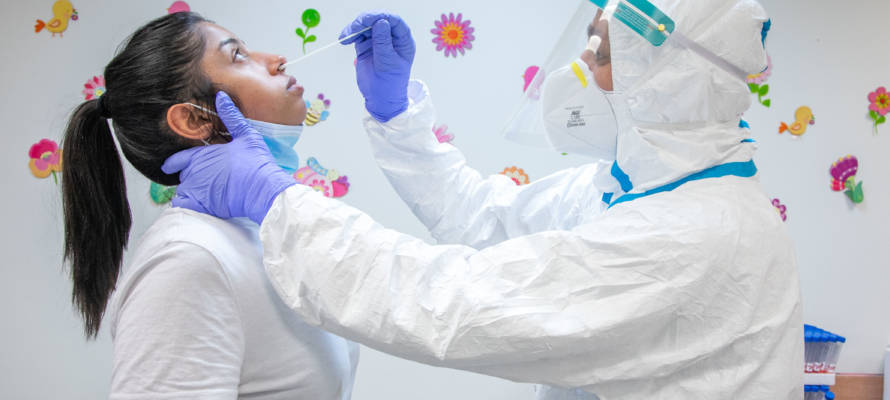Tel Aviv University researchers made remarkable findings related to the production of antibodies, which help corona patients battle the deadly virus.
By Yakir Benzion, United With Israel
An Israeli research team has discovered that severely ill patients develop coronavirus antibodies at a faster rate than those with a mild case of the disease.
The researchers from Tel Aviv University and the Sharon Hospital at the Rabin Medical Center used an innovative new antibody test on some 70 COVID-19 patients at the Sharon Hospital and compared them to a healthy population.
The study examined the development of antibodies targeting two different viral proteins in the patients’ bodies and found that antibodies known as type IgG were maintained in the blood of most patients throughout the study. A second antibody called type IgM developed in corona sufferers only against the protein called RBD, and not against the virus’ nuclear protein, which is normally the case.
This sounds like complex biology, and it is, but the researchers say their findings have important implications for our understanding of the immune response to coronavirus, as well as future tracking of the effectiveness of vaccines and population surveys (serological tests) for antibodies.
“We sampled the antibodies of about 70 COVID-19 patients at the Sharon Hospital throughout the outbreak of the disease in Israel,” said Prof. Ariel Munitz of the Department of Microbiology and Clinical Immunology of the university’s faculty of medicine.
Munitz said their findings showed that the new serological test they developed “may be utilized as a diagnostic tool at different stages of the illness.” The IDF’s Medical Corps has already used the test to detect COVID-19 antibodies in the blood of IDF soldiers.
Within the next few weeks the test will be sent to the Israel’s Ministry of Health for validation, so that it may be used in population surveys.
“We proved that our test, based on the antibodies, was able to distinguish between those who were ill and those who were not – at very high levels of sensitivity and specificity,” Prof. Moti Gerlic said.
“We tried to understand whether the level of antibodies in their blood corresponded in any way to the severity of the illness, whether the antibodies developed in a similar way in all patients, and whether they remained in the blood for long periods of time – a critical factor for the ‘herd immunity’ we all wish to attain,” Gerlic noted.
Gerlic said scientists are still figuring out how the corona antibodies actually work, “but the facts that these antibodies are quickly produced in all patients, and stay in the blood for a long time, suggest that they provide some level of immunity.”
